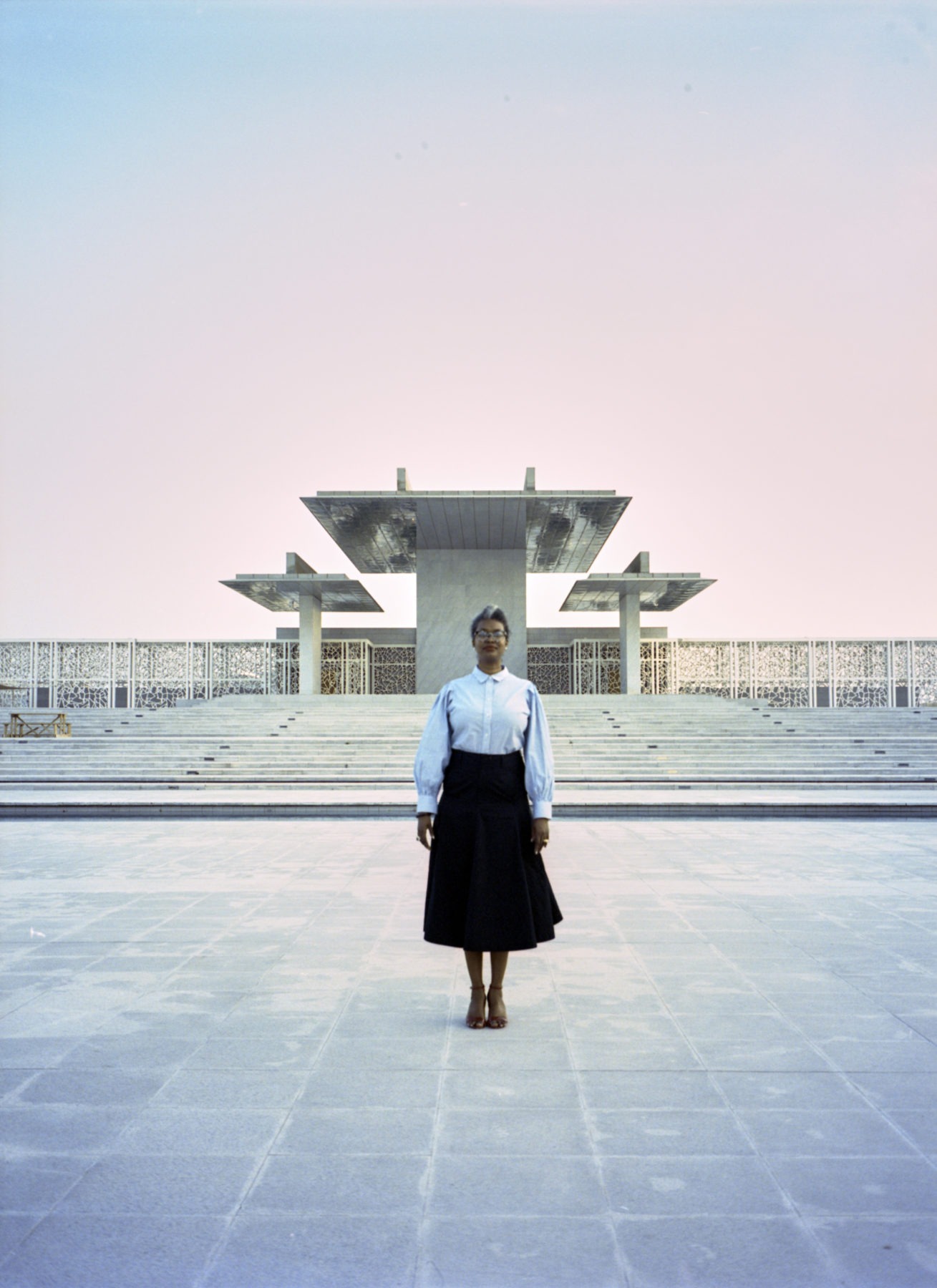
How do you see the concept of Afrofuturism connect to what’s happening in Doha’s creative landscape right now?
When I landed here, I was amazed at how diverse Doha is, and how design here incorporates traditional elements. For instance, I’ve observed a large African population here. This is great because their presence means that they are part of the future of this country. Likewise, when it comes to architecture in Doha, instead of being completely disconnected from cultural roots, it has elements of traditional Arabic heritage.
What I’ve seen in Doha so far is this embrace of both tradition and future at the same time – much like Afrofuturism. In Afrofuturism that is what we want. Afrofuturism pulls from an ancient past that informs our present, and, hopefully, cultivates a future that is more in-line with our vision, our desires, and our dreams for our future generations. And I think that is where Afrofuturism and what’s happening in Doha come together. They’re very much aligned in that respect.
What I’ve seen in Doha so far is this embrace of both tradition and future at the same time – much like Afrofuturism.
–– Ingrid LaFleur
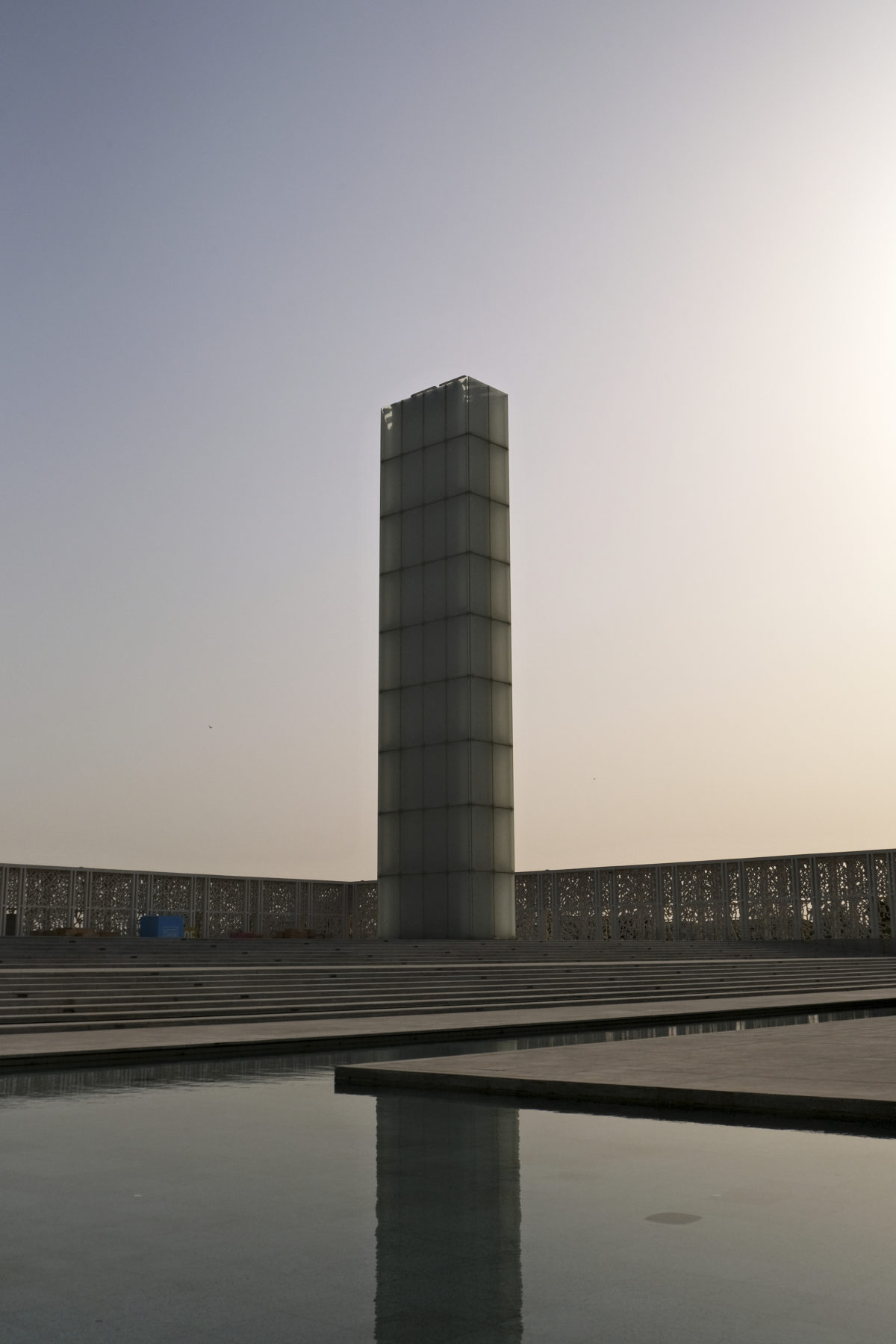
All photos by Shaima Ayoub
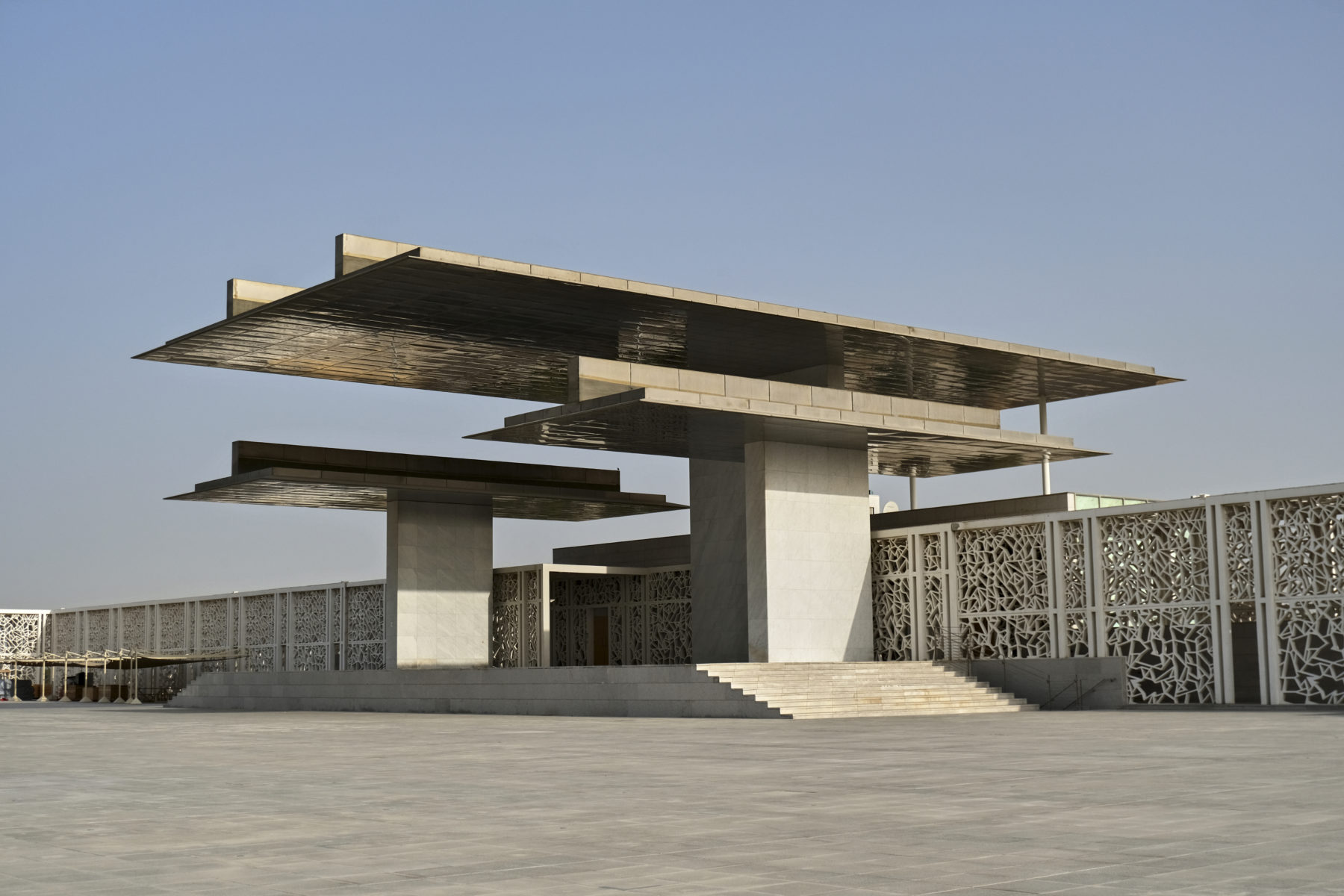
How do you see Afrofuturism as influencing other cultures and ethnicities?
For this, I think we first need to understand what it means to look different from others. Very specifically, when you see a person the first thing you notice is appearance, the physical body. The observation results in a visceral reaction for the beholder.
Afrofuturism helps to create a healthier relationship with Black people by consistently centering Black bodies. It places Black people in a different light that teaches about the complexities of our present condition and our past, and what we desire for a future. The centering of Black bodies is crucial in understanding the ramifications of our imaginings. We can, for instance, imagine a world that is safe for our families and communities. We may even want to employ technologies to help make us safer.
However, in the case of facial recognition software, this only further harms Black people because the software, when created, didn’t consider darker skin and therefore misidentifies Black people, especially women, at a higher rate. The software has been installed in Detroit city, which has a majority Black population, and already people have been misidentified as criminals and arrested.
How does Afrofuturism view the notion of ‘race’?
Race exists in our minds, in our imagination. Racism is taught to us. As a consequence, what has happened is that those of color or from different ethnic backgrounds have learned to live with the notion of racism. But that doesn’t mean that it’s not hurting us or our families or our communities.
We know that race divides people. It also divides knowledge. The moment we categorize and exclude people based on physical features, we lose access to their knowledgebase, and consequentially, the opportunity to heal or resolve challenges within our shared communities. When it comes to addressing common challenges, we need to appreciate that people have different approaches and if you keep pushing away all these different approaches, then you’re going to limit yourself. And therefore, you’re not going to be able to grow, evolve and prosper to the maximum potential.
What’s ironic is that our minds are probably the freest place on earth, and yet we still put limitations on ourselves by allowing ourselves to be conditioned by external factors. Our imaginations have been assaulted by concepts that have been able to control how we perceive others.
Afrofuturism tells us we need to move beyond these different manmade barriers. It aims to change that, to pierce that, to free us from that yolk. Because unless everyone is free, we can’t live life to the fullest.
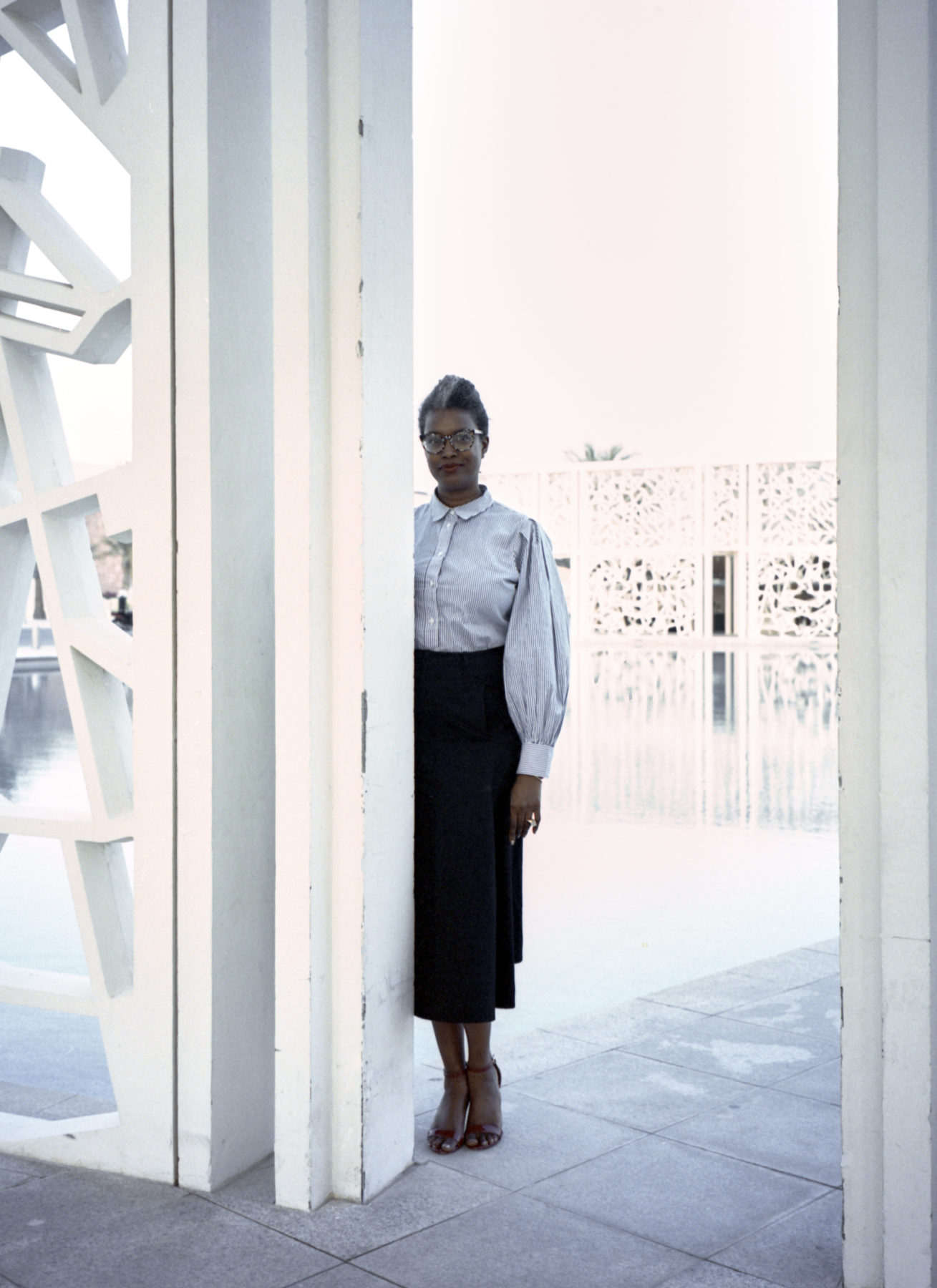
How have ‘white’ communities responded to Afrofuturism?
Anti-blackness is deeply embedded in our systems. If, all your life you’re told not to acknowledge a group, and then you finally not only acknowledge them, but center them and involve them in the creation of your future, you immediately resist the anti-Black narratives and systems that infect our humanity.
That’s what Afrofuturism does; it helps us to free our imaginations from limiting thoughts such as racism. I’ve received letters from white men who are thankful for the Afrofuturism workshops I’ve conducted. They tell me that learning to center Black people and their issues in the construction of futures was a healing experience for them.
That’s a beautiful moment, especially given the fact that our world is mostly made up of people of color!
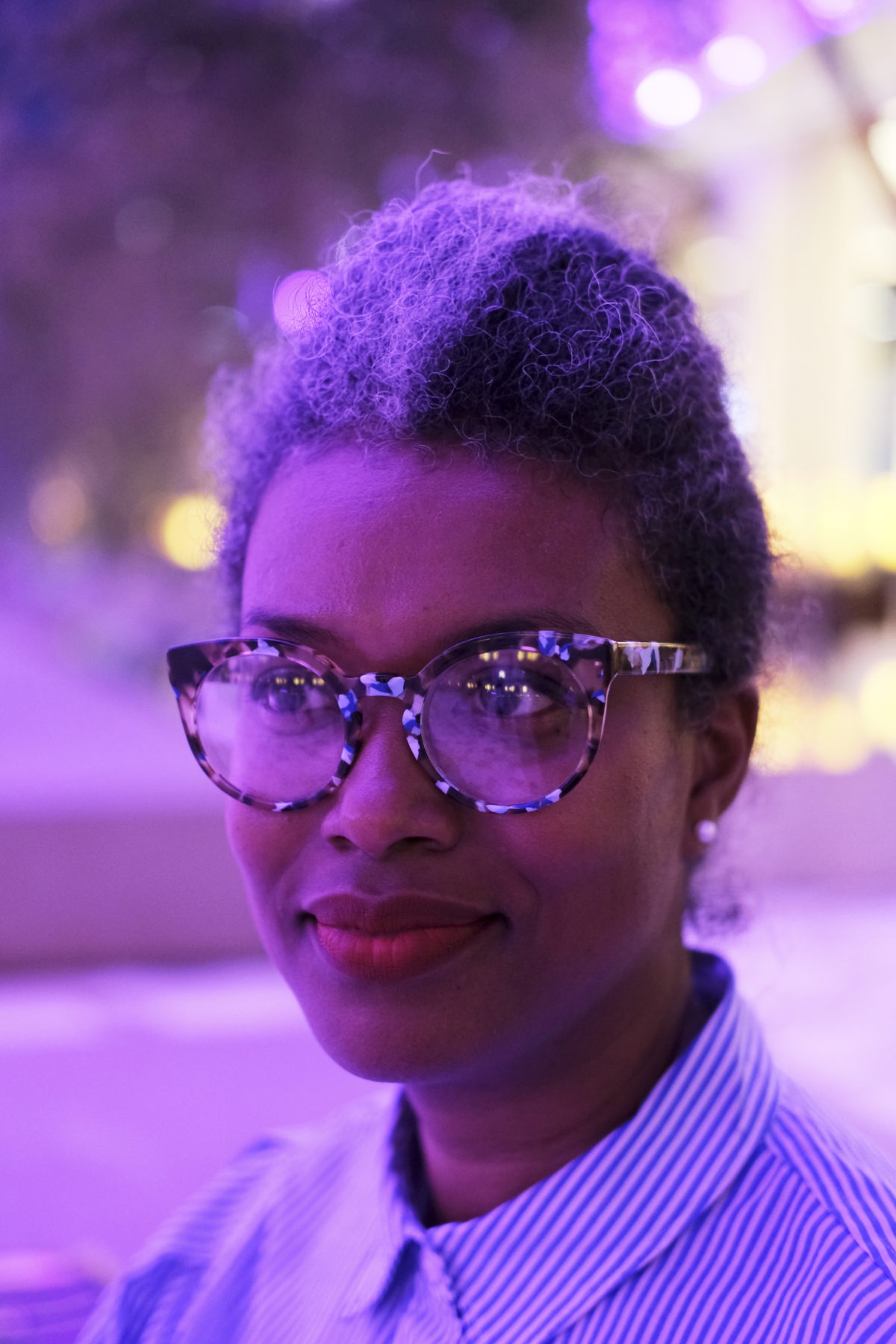
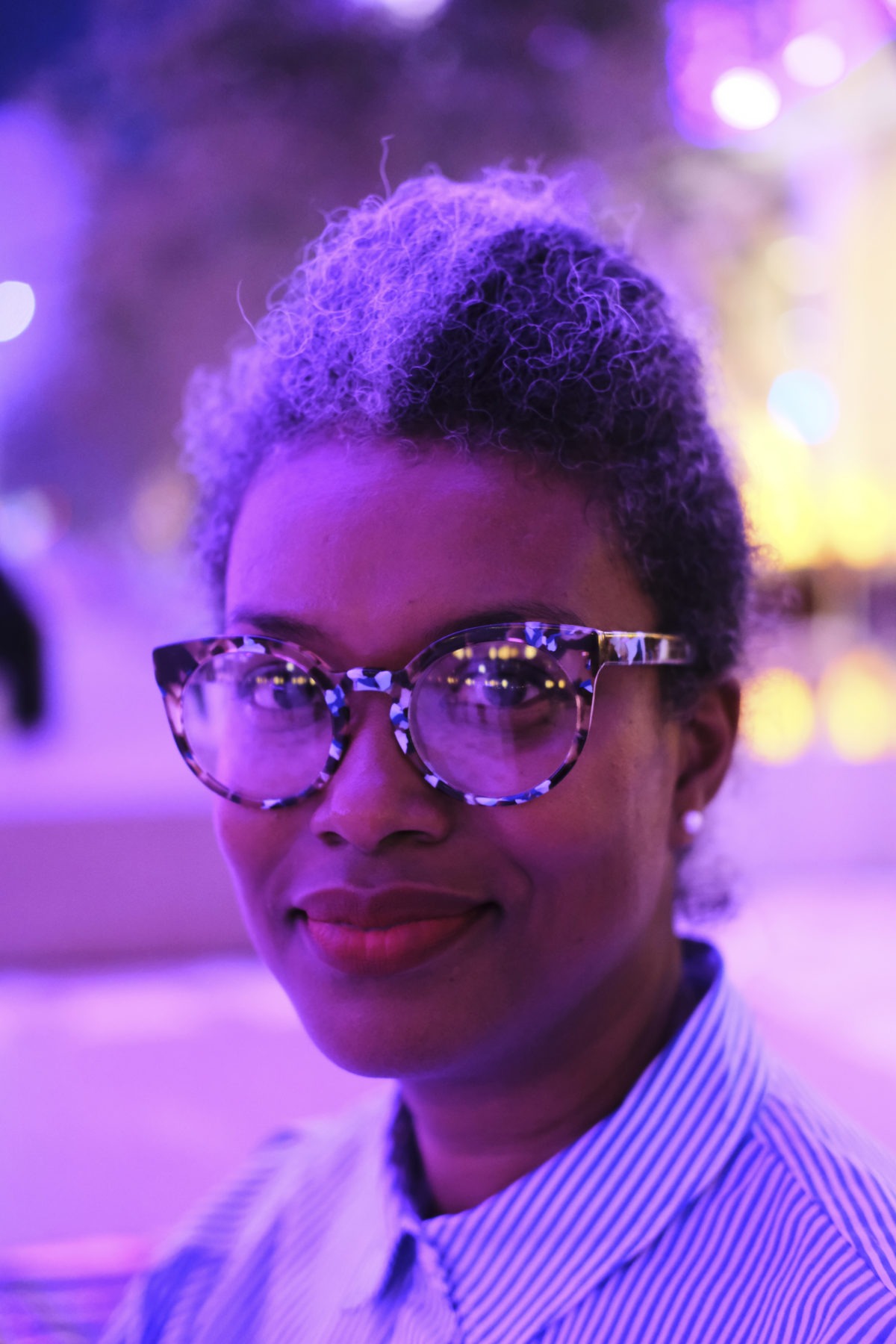
About ‘Futurisms'
How has the exhibition ‘Futurisms’ addressed the diversity you’ve seen in Doha?
When I was invited to curate an exhibition at VCUarts Qatar, I didn’t want to do a purely Afrofuturist show. I was aware and respectful of the fact that I would be visiting another region that had a unique culture and rich history. Hence, I thought it was a perfect opportunity to be in conversation with other futures. That’s the reason why this exhibition has this specific lineup of creatives you see here, and why it is titled ‘Futurisms’.
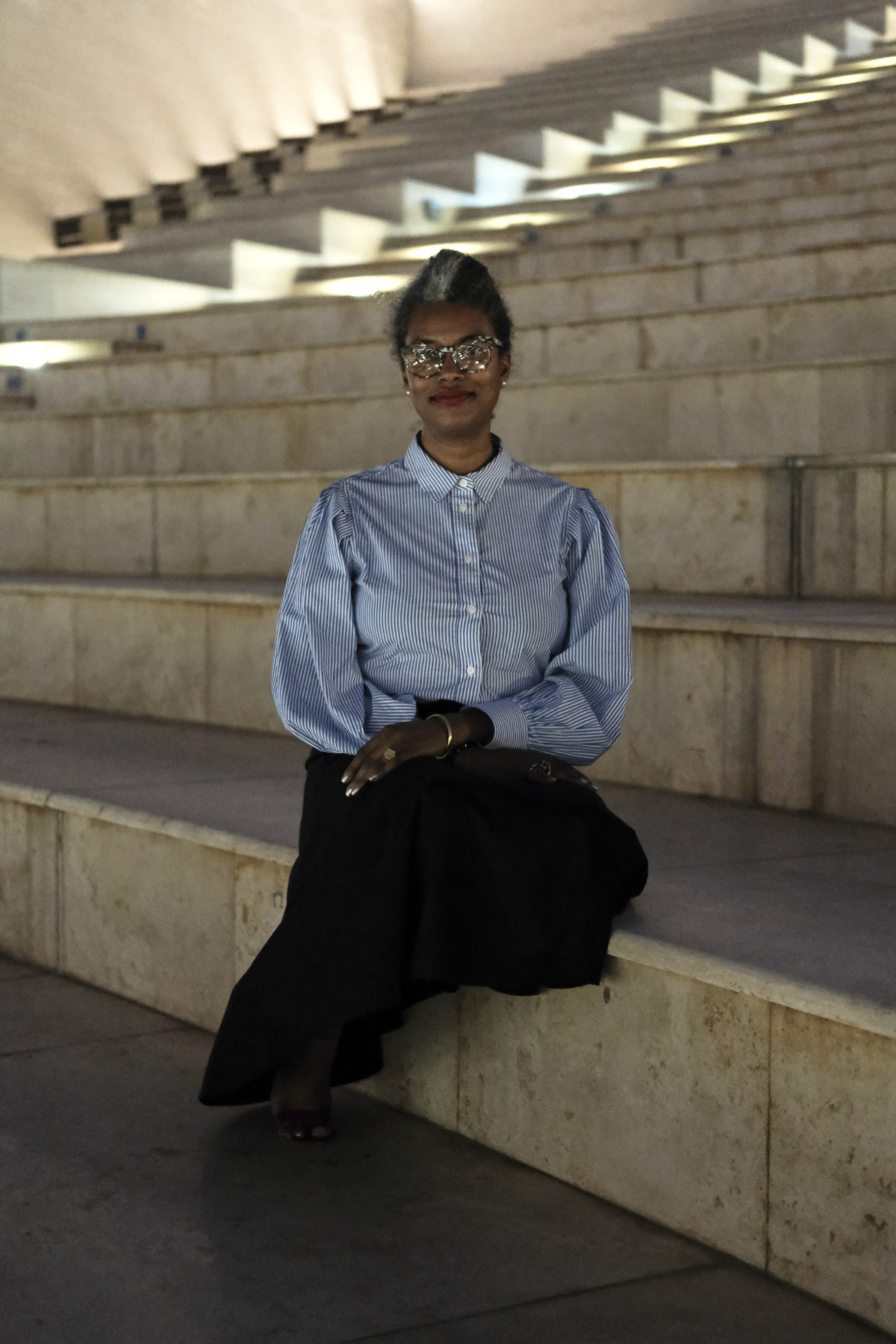
All photos by Shaima Ayoub
Saba Taj focuses on Muslim futures and the power of the undefinable.
The works of Saks Afridi, who created the term ‘Sci-Fi Sufism’, are all about finding God through love.
Jasmine Murrell, who is from my hometown of Detroit, is an Afrofuturist who advocates for a future that is guided by the wisdom of our ancestors and the elderly.
The multi-media installation by Hyphen-Labs, an all-female collective, combines design, virtual reality, and neuroscience to create speculative designs.
The next artist, Alisha Wormsley, became famous for her artwork that says, ‘There Are Black People In The Future’. Futurisms brought the message to Doha, translated into Arabic for the very first time.
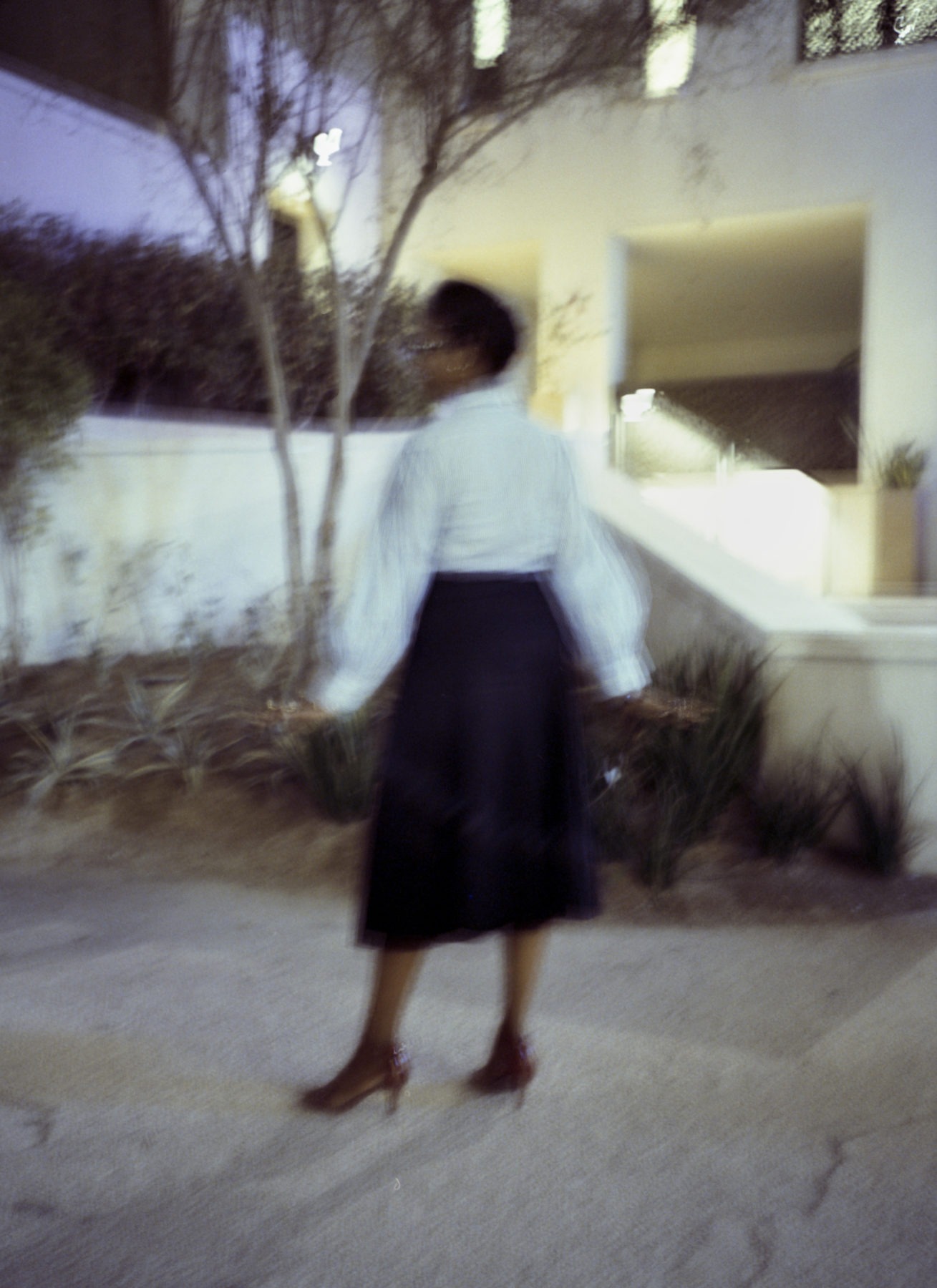
@maisonlafleur
ingridlafleur.com
Ingrid LaFleur is a globally recognized curator, artist, pleasure activist and Afrofuturist committed to exploring and implementing forward-thinking solutions across multidisciplinary industries including but not limited to art, technology, education, social enterprise, and finance. For over twenty years, LaFleur has participated in and witnessed the growth of the cultural movement Afrofuturism.
Author of the upcoming book, ‘How to Think Like An Afrofuturist’, LaFleur regularly consults individuals, businesses, educational institutions and social justice organizations on how to forecast and transform their practices to help manifest their future goal.
She boasts an extensive list of speaking engagements nationally and internationally including presentations and workshops at Centre Pompidou (Paris), TEDxBrooklyn, New Museum (New York), Harvard University, and Oxford University. In 2020, she founded The Afrofuture Strategies Institute (TASI), to research the future impact of emerging technology on Black bodies and to co-create alternative destinies using ethical imagination.